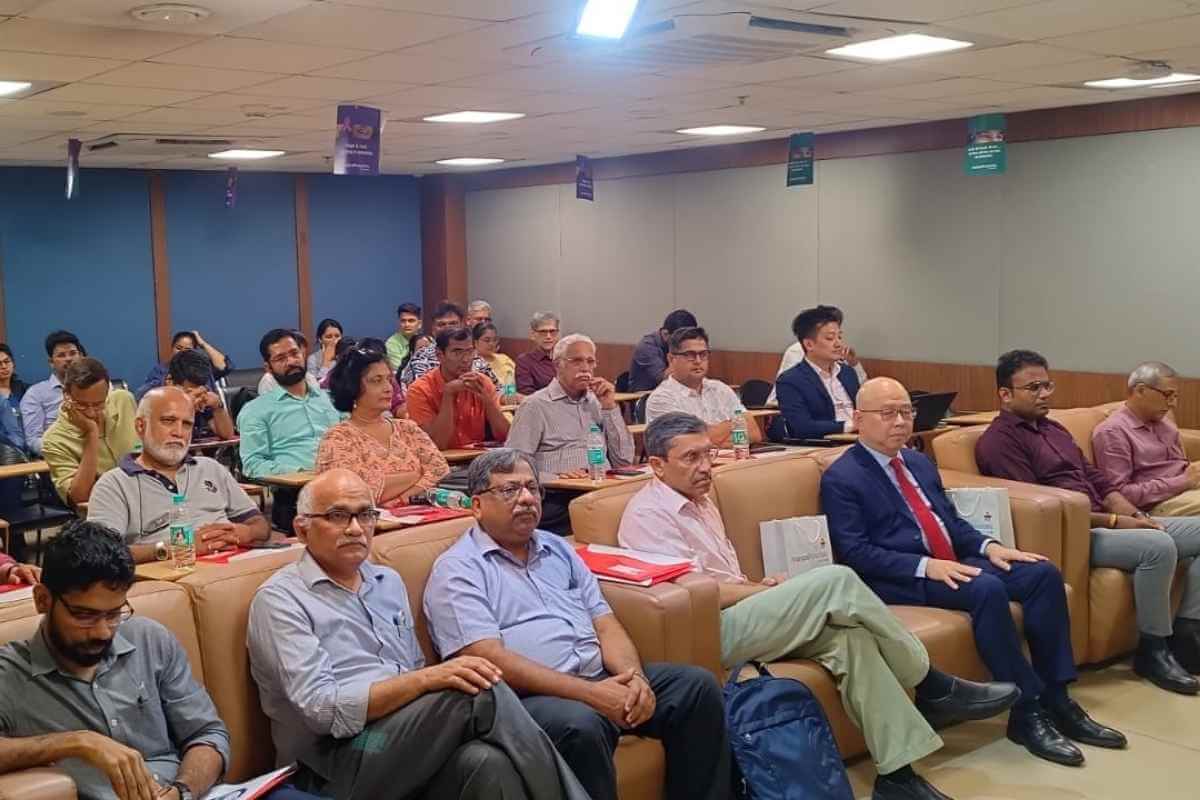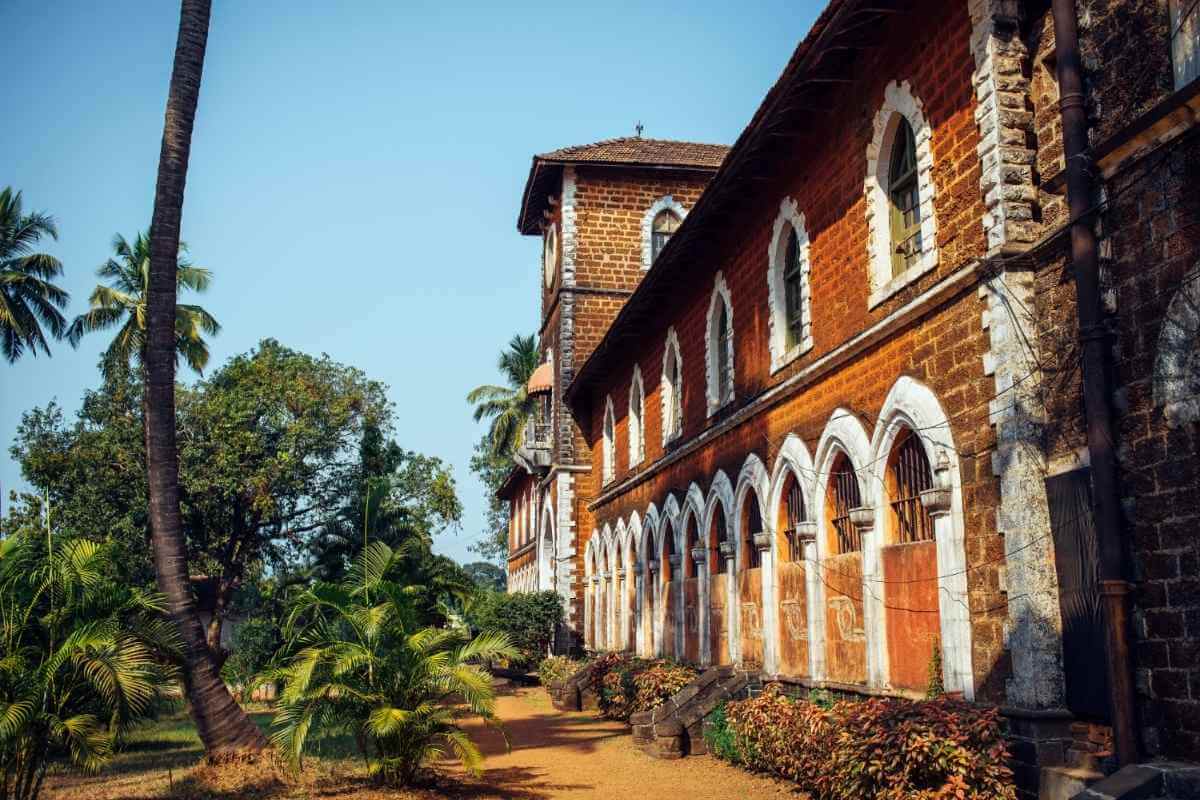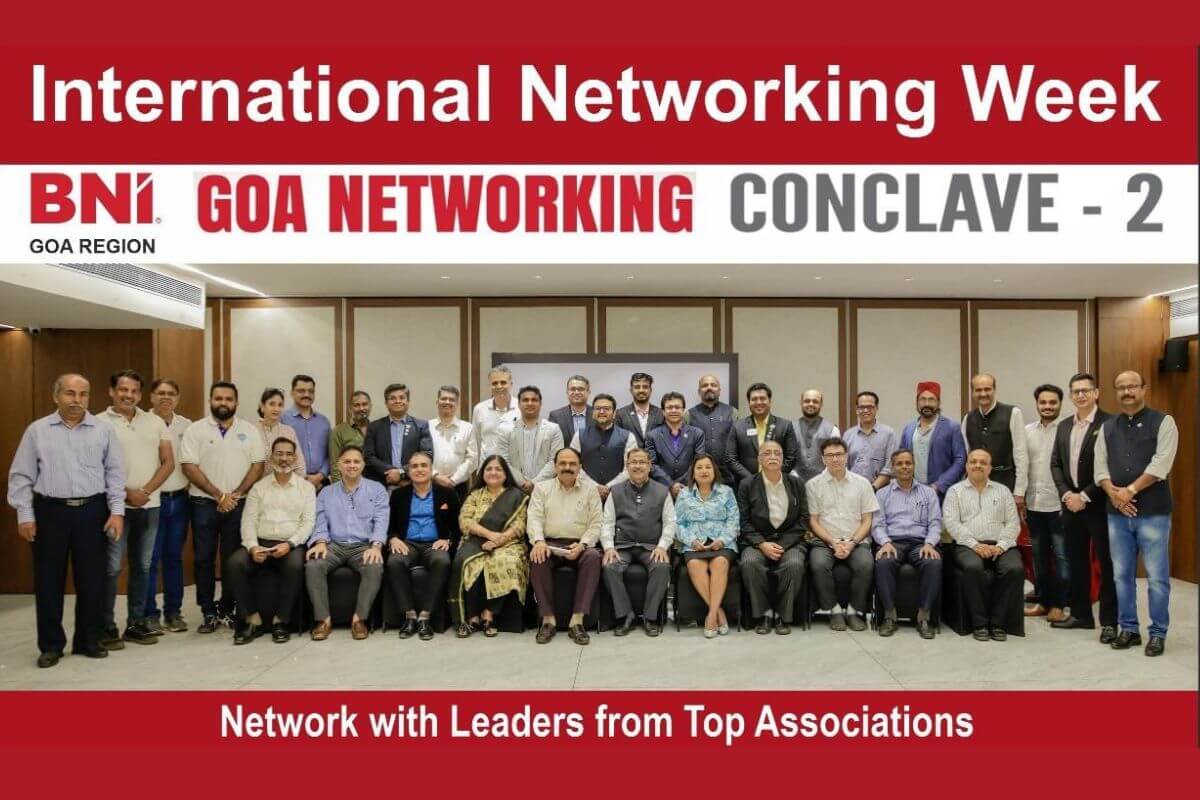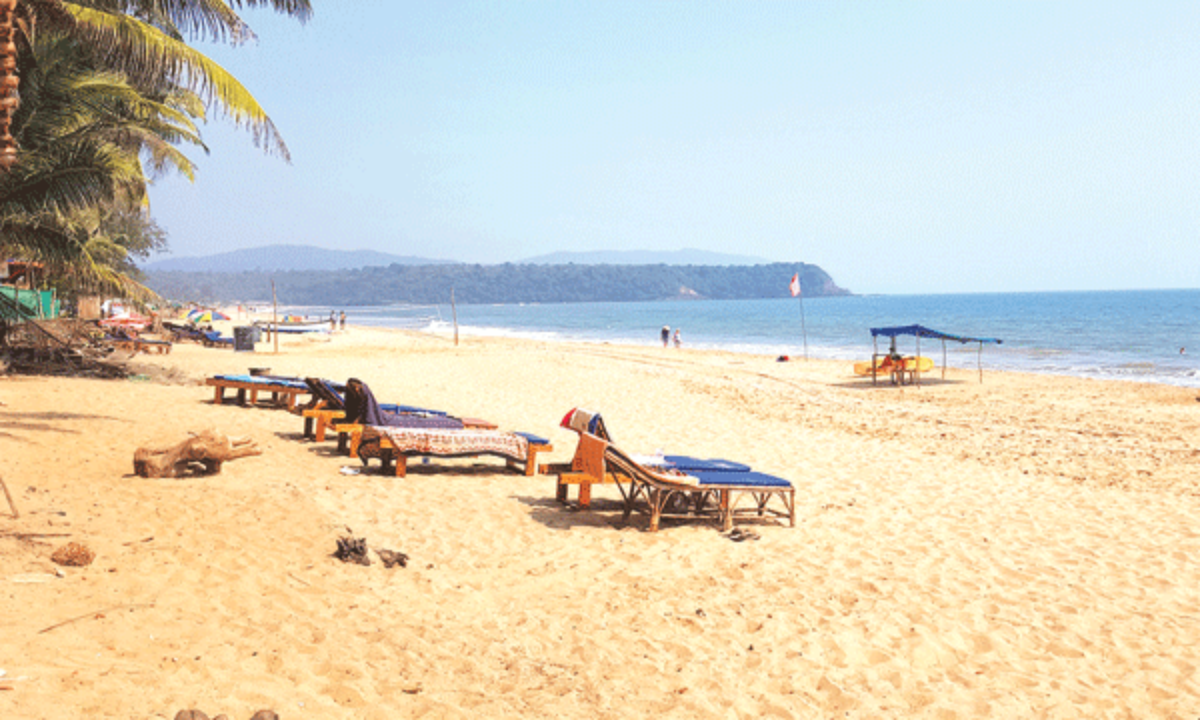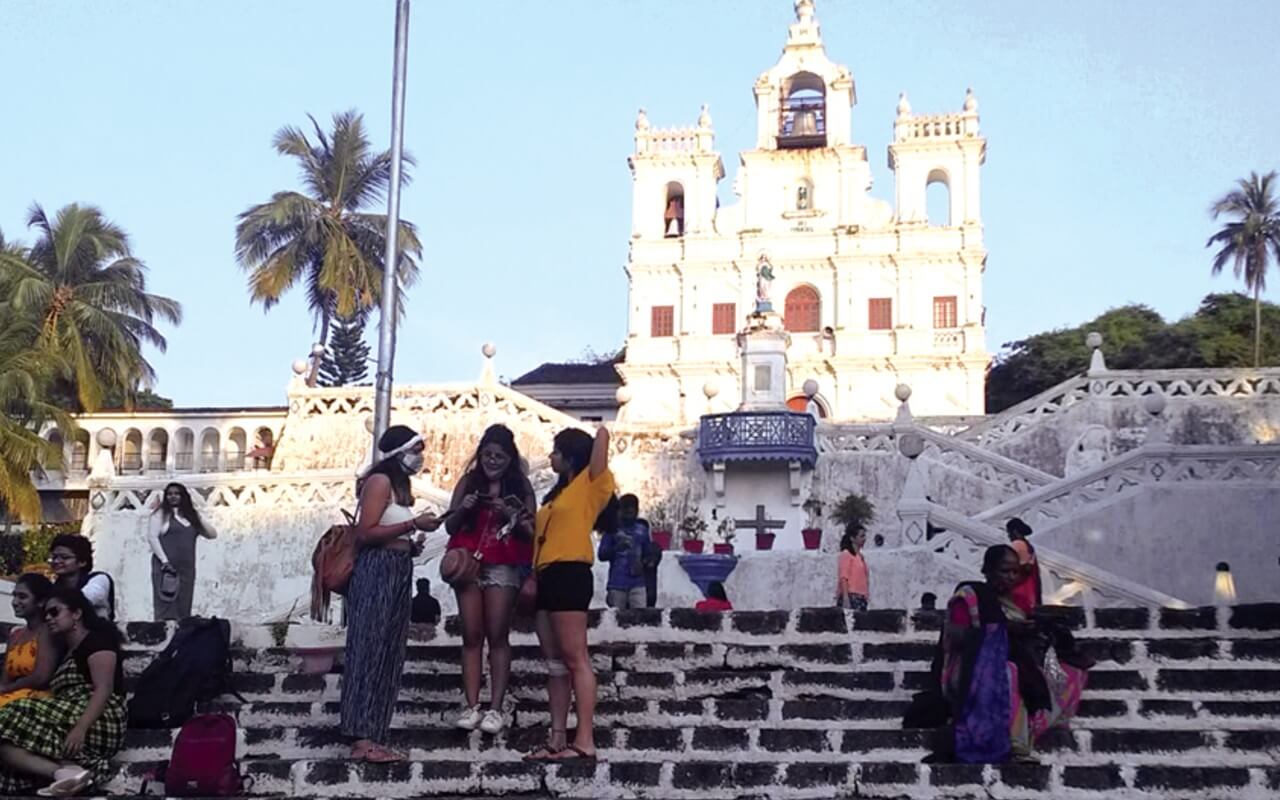Goans in normal circumstances do not want outsiders to settle down in Goa. It is an inherent instinct of the locals to remain reserved, and live in peace and harmony except the one thing they do not tolerate is the outsiders taking share into business activity in the state. There has been a persistent opposition from Goans towards the Lamanis and with the time matter became serious. Now the question is, whether it is possible to eradicate Lamanis from Goa? and is it right in the first place??
While tourists rest under the hot sun, and the soothing sound of waves; they are suddenly woken up by a bunch of salesgirl persisting to sell their jewellery. Relentless and persistent are their mottos to get the tourists to buy their things. They are brightly dressed people who often wear heavy pieces of jewellery. ‘Lamanis’ as they are normally called are tribal people who have made Goa their home and a place for their business.
Today Lamanis are not only selling the imitation jewelleries but they have taken over other businesses like fishing, taxi operators and constructions.
These people have set up several businesses in the state after realising its potential due to its tourist footfalls. According to Devdiscourse, many Lamanis are involved in the seasonal tourism trade, selling trinkets and handmade clothes along the coastline to tourists who frequent the coastal state annually. While several second-generation Lamanis settled in Goa are also involved in mainstream businesses, largely affiliated to the tourism sector, which includes the operation of taxi services.
Hundreds of Lamanis (members of Nomadic community) can be seen in many famous beaches of Goa trying to sell their merchandise to the tourists who are resting under the sun. Persistent in selling, they do not respect the privacy and solitude of the tourist. This often creates an unwanted nuisance for the tourists as well as the shack owners.
Slowly their growth in the state has posed a threat to the local businessmen who have called out to shut down the business that is run by Lamanis. According to the report published by Goa Prism, The village assembly of a popular Goa beach village, Benaulim in South Goa, passed a resolution to shut down all businesses, including taxi services operated by the members of the Lamani community. They mostly referred to the Lamanis who moved from the central and southern states of India.

A similar remark was made in the year 2017, by the tourism minister Babu Ajagaonkar who had demanded the ban on Lamanis in Goa. According to him, the Lamanis who are members of a nomadic tribe mostly hailing from Karnataka should be banned from Goa because they besmirch the reputation of Goa and don’t fit in the coastal state’s culture.
Claims were made that Lamanis run illegal trades and must be stopped as they might spoil the reputation of the State. Responding to this, Police officers stated that a certain community cannot be targeted. However, the wrongdoings must be punished regardless of the community.
These remarks sparked a bit of controversy as the Karnataka Chief Minister questioned about targeting a certain community while encouraging the Foreigner’s trades. Lamanis are regarded as the ‘Gypsies of India’ and are nomadic people who travel around selling goods. They have come a long way in the state by working in menial jobs like construction to set up business. They too have a share in the Tourism Industry as their artworks are curiously seen by tourists.
Remarks against the community and considering their business as a threat has put the community in an insecure and unrest state. Lamanis and Russians are similar in most ways. Russians too, have travelled and settled in Goa and have set-up their business and bought lands. They have made Goa more popular around the globe and Goan places like Morjim is seen to have their influence.
Lamanis are a small community that has found the home in this State. They have dwelled themselves in the mainstream businesses of Goa that it is hard to remove them and are slowly progressing in the state. The Lamanis have become an integral part of the tourism industry in Goa and they must be respected as a community. What we can do is keep a check on the illegal trades and take precautionary measures to prevent any wrongdoings.



